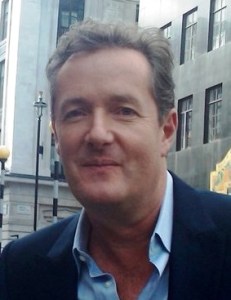
Modern governments have refined the art of saying one thing and doing another. Never in the history of Western politics have actual policies diverged so sharply from official lines. (For illustration, may I suggest Brexit?)
So much more enthusiastically must we rejoice whenever the two overlap – as they seem to in the declaration issued by US Secretary of State Mike Pompeo.
The State Department has seldom been so unambiguous: “…the United States reaffirms as policy [my emphasis] its refusal to recognise the Kremlin’s claim of sovereignty over territory seized by force in contravention of international law,” said Mr Pompeo.
And, “…the United States rejects Russia’s attempted annexation of Crimea and pledges to maintain this policy until Ukraine’s territorial integrity is restored.”
And, by way of a parenthetical comment: “Through its actions, Russia has acted in a manner unworthy of a great nation and has chosen to isolate itself from the international community.”
Well put, and never mind the tautology. Putin’s Russia is thereby recognised as a criminal pariah state and, by the sound of it, slated to be cast in that role until it changes its ways.
Does this mean that all those ugly suspicions about Trump being Putin’s agent or at least doormat have been dispelled? Different interpretations of the Pompeo Declaration are possible, but mine is that, if anything, such suspicions have been reinforced.
The contrast between the Pompeo Declaration and Trump’s recent obsequious comments on Putin is too sharp for them to coexist within the framework of a single coordinated policy. When it comes to Russia, the president is clearly at odds with his own State Department, intelligence and counterintelligence services – and, most important, Congress.
In fact, they seem to be at war, and what we’re hearing is echoes of the salvos fired in the raging battle. The unequivocal, steadfast resolve of the Pompeo Declaration suggests that one side is winning, and it isn’t Trump.
There exist other signs as well, such as the two draft laws currently before Congress, both proposed or at least seconded by members of the same party to which Trump belongs, nominally at any rate.
One proposes that, if sufficient evidence of wrong-doing, especially election meddling, is provided by the intelligence community, Congress will be empowered to impose sanctions on Russia without presidential approval.
That bill also represents a rebuke of the president by giving Congress new veto powers to block him from removing sanctions on Russia – something the president apparently wouldn’t mind doing.
Last year, Congress did levy new sanctions on Russia and, when Trump tried to ease them, restricted his authority to do so.
Since an overwhelming congressional majority supported the imposition of sanctions, there was nothing Trump could do about it, but the White House protested vigorously – and has since tried to do all it can to sabotage the bill’s implementation.
According to the president’s staff, the bill includes “a number of clearly unconstitutional provisions” that “purport to displace the President’s exclusive constitutional authority to recognize foreign governments, including their territorial bounds.”
That’s God’s own truth. But the whole point is to curtail the president’s authority to kowtow to Putin. Congress simply doesn’t trust Trump to serve American interests in dealing with Russia and, implicitly, conducting foreign policy in general.
This was re-emphasised yesterday, when several senators introduced a bipartisan bill to prevent Trump from pulling out of NATO without first securing the approval of two-thirds of Senate members.
The bill is a response to Trump’s numerous attacks on NATO, including threats to pull out.
The president in general doesn’t have much time for international organisations, which is a good thing. What’s bad is his evident inability to see the difference between giant supranational contrivances like the EU and purely military alliances like NATO.
However, this bill too is playing fast and loose with the Constitution. Traditionally congressional approval is only required for a president to enter treaties, not to leave them.
Such cavalier treatment of political scripture is another proof of Congress’s manifest lack of trust in Trump. US senators don’t encroach on those sacrosanct tenets – unless there’s clear evidence that a president abuses his constitutional mandate.
Republican leadership may not allow a vote on any such bills, but the very fact that they’ve been put forth suggests the gestation of an inchoate duopoly in foreign policy. And, should the forthcoming half-term elections return a Democratic majority on one House or even both, Trump may well become the first strictly ‘domestic’ president.
I’d pay good money to be a fly on the wall when Trump explains the Pompeo Declaration to his friend Vlad. Putin must be incandescent: after all, if Russia is destined to remain a pariah state for any foreseeable future, Putin’s Crimean triumph becomes a Pyrrhic victory.
In general, watching politicians squirm is among the greatest pleasures of my life, and something tells me that Trump may sooner or later provide a lot of material for my delectation. This, even if I can’t overhear his grovelling chat with Putin.


 Absolutely. Provided they’re really bad Muslims.
Absolutely. Provided they’re really bad Muslims. If the Roman historian could read Piers Morgan’s self-serving apologia of Trump, he’d probably repeat his aphorism “they make a desert and call it peace”.
If the Roman historian could read Piers Morgan’s self-serving apologia of Trump, he’d probably repeat his aphorism “they make a desert and call it peace”.


 On behalf of all the commentators who were appalled by Trump’s prostrate submission to the Botox Boy, I’d like to apologise to the president.
On behalf of all the commentators who were appalled by Trump’s prostrate submission to the Botox Boy, I’d like to apologise to the president. I especially liked the moment when the Botox Boy passed a World Cup football to Trump and said: “The ball is in your court”.
I especially liked the moment when the Botox Boy passed a World Cup football to Trump and said: “The ball is in your court”.